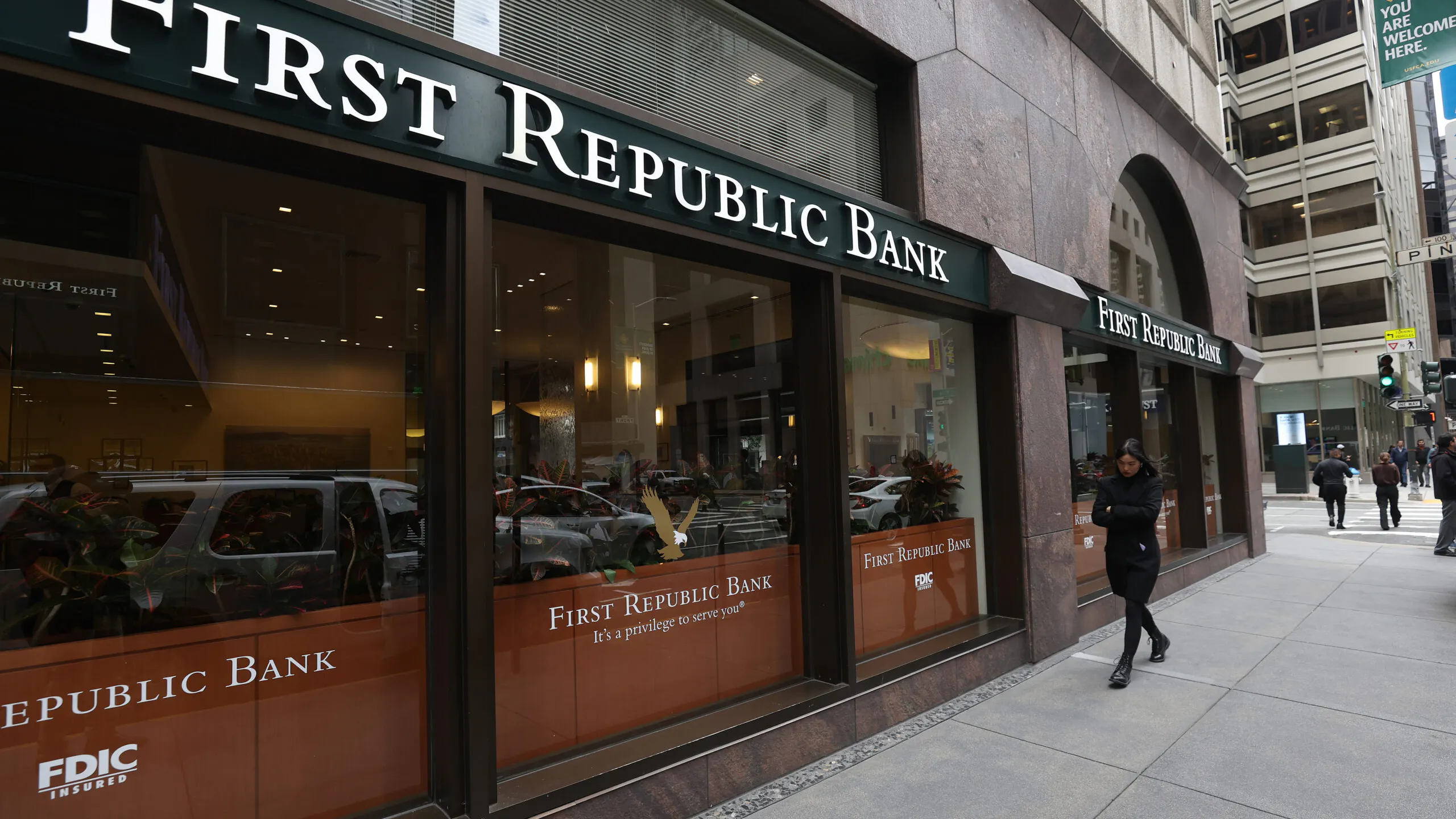Large financial institutions will provide First Republic Bank with $30 billion in deposits as the company witnesses pressure from customers who desire to withdraw funds.
Wells Fargo, JPMorgan Chase, Bank of America, and Citigroup will each contribute $5 billion of deposits to assist First Republic Bank, which is heavily involved in wealth management and has many customers with deposits exceeding the $250,000 threshold protected by the Federal Deposit Insurance Corporation, according to a Thursday report from Bloomberg. Officials from the federal government enabled the deal, details of which circulated across agencies and financial institutions on Thursday ahead of the announcement.
Goldman Sachs and Morgan Stanley will each contribute $2.5 billion, while PNC Bank, Truist Financial, BNY Mellon, U.S. Bancorp, and State Street will each contribute $1 billion. First Republic Bank previously considered a sale and has been working with JPMorgan Chase to contend with its current difficulties.
Treasury Secretary Janet Yellen, Federal Reserve Chair Jerome Powell, FDIC Chairman Martin Gruenberg, and Acting Comptroller of the Currency Michael Hsu said in a statement that the “show of support” is “most welcome” and “demonstrates the resilience of the banking system.”
Shares of First Republic Bank declined nearly 73% between March 8 and March 13, the time horizon over which Silicon Valley Bank and Signature Bank were shuttered by the FDIC. Prices for First Republic Bank rose more than 10% on Thursday amid the deposit assistance discussions.
First Republic Bank maintains $271 billion in assets, an amount comparable to the $212 billion maintained by Silicon Valley Bank and the $110 billion maintained by Signature Bank. JPMorgan Chase, Bank of America, Citigroup, and Wells Fargo respectively control $3.7 trillion, $3.1 trillion, $2.4 trillion, and $1.9 trillion; some have noted that the recent collapse of smaller banks could spur consolidation in the financial services sector.
Silicon Valley Bank announced a $1.75 billion share sale last week after the company suffered heavy losses from the liquidation of long-term assets in a $21 billion bond portfolio, raising concerns among venture capital firms and startups with ties to the company about the safety of their deposits. The portfolio had declined in value due to the higher economy-wide interest rate environment caused by actions from the Federal Reserve to decrease inflation.
CLICK HERE TO GET THE DAILY WIRE APP
The vast majority of deposits at Silicon Valley Bank, which offered services to nearly half of the venture-backed technology and healthcare firms in the United States, exceeded the $250,000 threshold typically insured by the FDIC. Regulators scrambled to guarantee all deposits at Silicon Valley Bank such that the remainder of the financial system, in which roughly half of deposits surpass $250,000, would remain protected from the possibility of bank runs.
Yellen asserted before members of the Senate Finance Committee on Thursday that her agency, the Federal Reserve, and the FDIC successfully protected the deposits of affected banks. “I can reassure the members of the Committee that our banking system remains sound, and that Americans can feel confident that their deposits will be there when they need them,” she commented. “This week’s actions demonstrate our resolute commitment to ensure that depositors’ savings remain safe.”
Some lawmakers cautioned of moral hazard arising from efforts to insure deposits both above and below the $250,000 threshold. “I am concerned about the precedent of guaranteeing all deposits and the market expectation moving forward,” Senate Finance Committee Ranking Member Mike Crapo (R-ID) told Yellen, noting that “rising interest rates” induced by Federal Reserve efforts to combat inflation are “impacting household budgets, the federal government’s coffers, and, as we saw this week, our banking system.”

.png)
.png)

